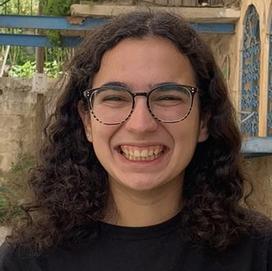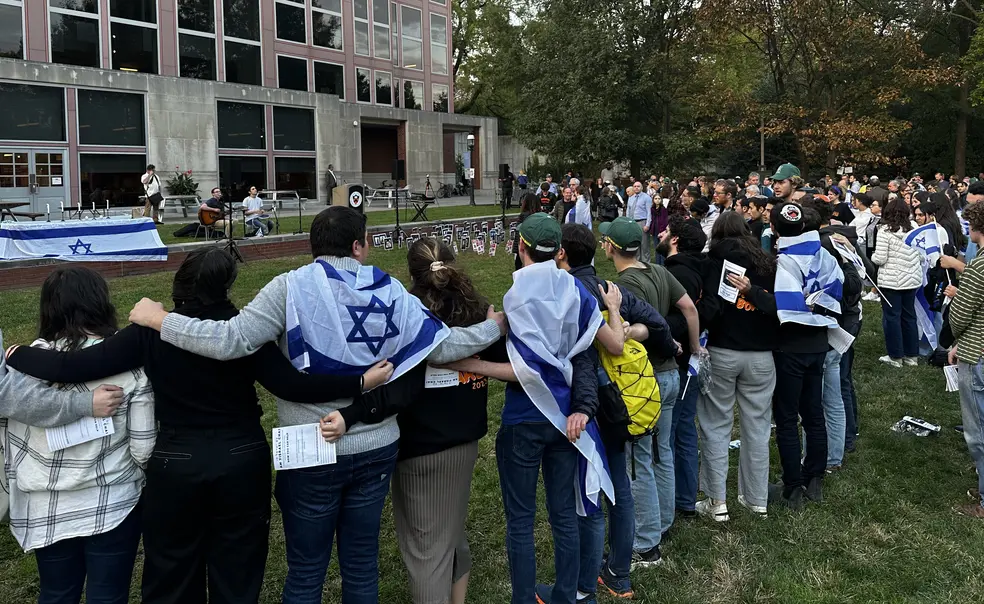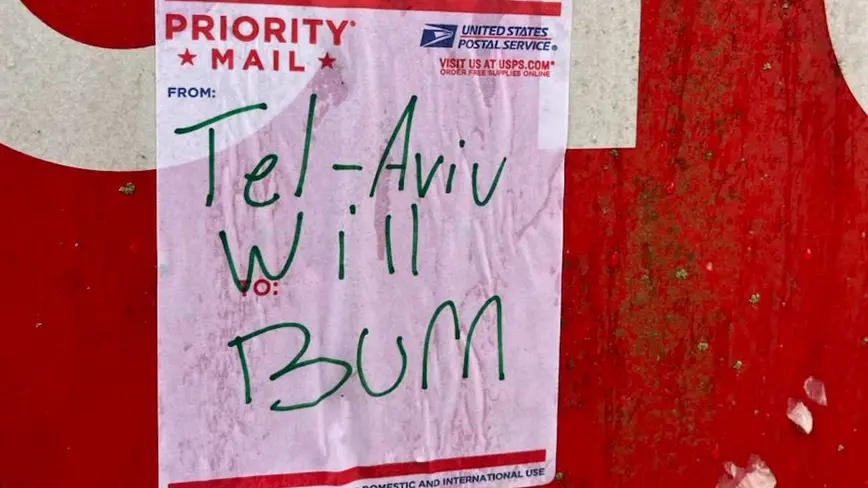How I Turned My Grief Over the Oct. 7 Attacks Into Action
‘By being part of UpliftIsrael, I received the gifts of agency and connection,’ writes Reyna Perelis ’27

On Oct. 7, 2023, my world was destabilized. My cousins in Israel were living in a war zone. My friends in the IDF were working through the nights and spending hours each day in bomb shelters. The bustling, pulsing Jerusalem where I studied in 2023-24 suddenly became home to thousands of Israelis who could no longer live safely in Israel’s north or south. And I continued my first semester of college, bewildered. In the year that has passed, I’ve taken in the news of the unfolding war and developed my sense of responsibility and community.
My grandfather was born following World War II in a displaced persons’ camp in Germany to parents who survived the Holocaust. He has lived his life in America with a persistent, visceral awareness of antisemitism, which he partially imprinted on my mom. A few years ago I found out my passport had expired. My mom surprised me by saying “A Jew can never have an expired passport. You never know what will happen.” But I wasn’t afraid or on the edge. My Jewish existence in America felt full, strong, alive, rooted. Then Israel was existentially threatened, and a storm of hatred blanketed Jews everywhere. On Oct. 8, I suddenly understood a different part of the Jewish experience: being hated and isolated. I did not like it.
Walking around campus and sitting in class, I felt alone. Did the people around me care about my great-aunt who lives outside of Tel Aviv, or my best friend serving on the Syrian border? Could I or should I try to share my sadness, my anxiety, my longing to be in Israel and part of the defense and rehabilitation of my people?
The Jewish community on campus became increasingly important as the war continued. Protective and warm, it was where I was understood and could feel both fear and hope with friends.
Weeks after Oct. 7, I joined a group of Princeton students building UpliftIsrael, an aid-delivery platform for Israelis displaced from their homes by Hamas and Hezbollah. I got to use my Hebrew and organizational skills, along with the connections that Princeton provides, to fill a pressing need. We created a website to raise money from a network of alumni and developed an elegant and efficient delivery system for those in need in Israel. These donations went to injured soldiers, families with infants, a young mother whose husband was a hostage, and my cousin’s reserve unit. To date, we have raised and delivered $300,000.
By being part of UpliftIsrael, I received the gifts of agency and connection. Instead of continuing to feel hopelessly distant from Israel, I got to take part in the daily efforts of Israelis to recover and persist. While in Israel over winter break, I spoke with soldiers in rehabilitation from injuries and families who had vacated their homes in the north or south and were struggling to find work and stability in the towns where they were temporarily living. Above all else, their dedication to their families and fellow Israelis and their tremendous sense of responsibility inspired me.
The many pains of this war are searing. Alongside my sadness, the joy of community and the thrill of empowerment have grown tremendously for me this year.
Reyna Perelis ’27 is from Teaneck, New Jersey, and is studying psychology. On campus, she is Yavneh’s prospective students chair and a member of the Religious Life Council. To donate through UpliftIsrael, follow this link.













No responses yet